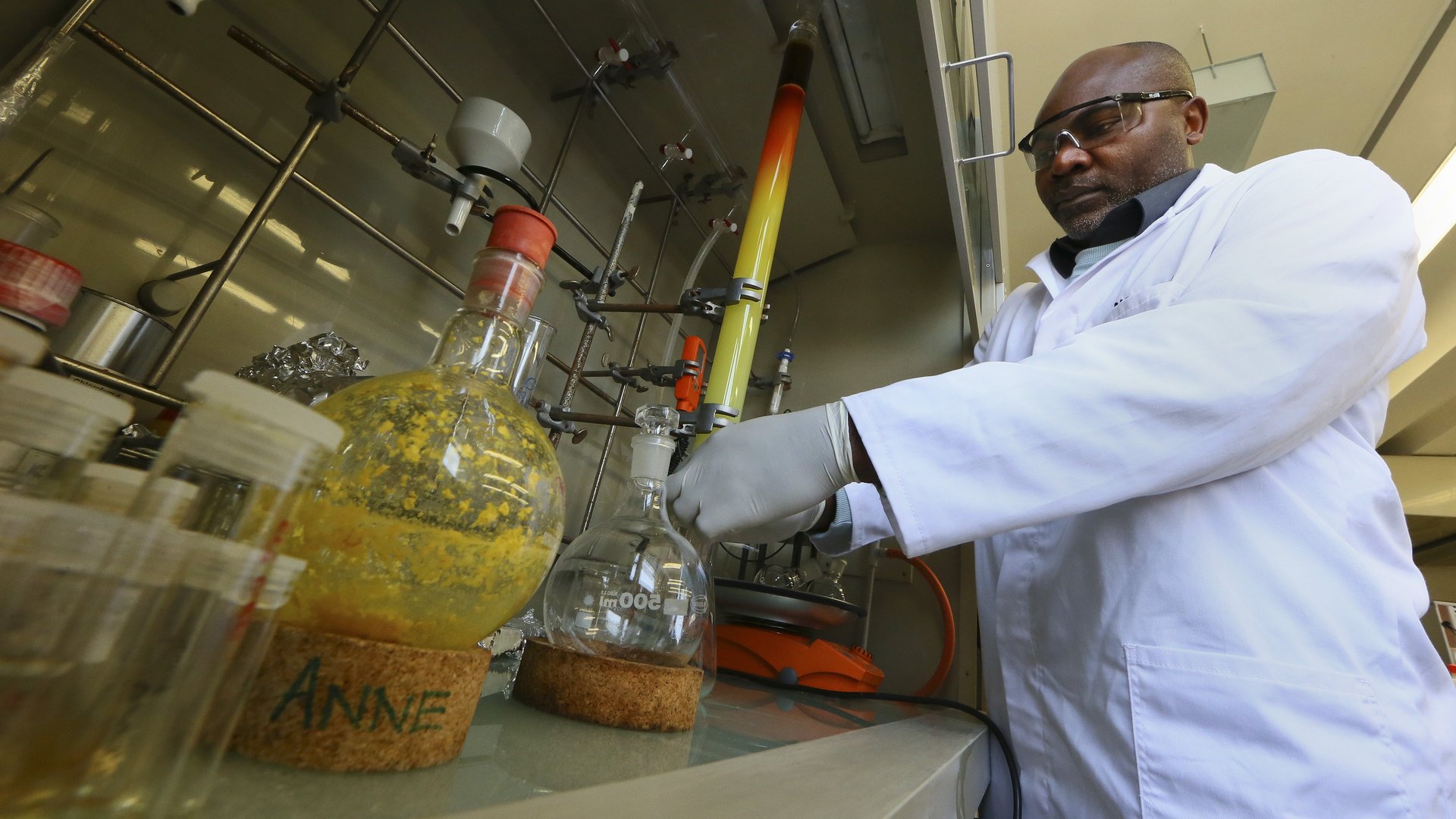South Africa has tripled its black science PhD graduates over the last decade
South Africa has tripled its black science PhD graduates over the last decade, and since 2013 has been graduating more black PhDs than white ones—a marked change from the situation under the apartheid regime. But the academic space still has a long way to go before it reflects the populations of the multi-racial country.


South Africa has tripled its black science PhD graduates over the last decade, and since 2013 has been graduating more black PhDs than white ones—a marked change from the situation under the apartheid regime. But the academic space still has a long way to go before it reflects the populations of the multi-racial country.
Black South Africans, although they make up the largest demographic group in the country at around 80%, were historically excluded from most higher education institutions, particularly research-intensive universities. Apartheid—with its policy of separate development—meant when South Africa’s democratic government took over higher education in 1994, it had to transform academia.
Research increasingly shows that diversity is vital for intellectual investigation. Research, at its heart, is about asking questions and trying to come up with answers or solutions. People from varied background come up with different research questions, alternate ways of looking to answer these questions, and can offer different perspectives in their solutions. They also unearths colleagues’ possible biases. The same is true for gender equality.
A study published in journal Nature in 2014 found that publications with diverse authors were more cited than those where authors had similar sounding surnames.
And South Africa’s quest to create diversity in a largely white academic space is starting to bear fruit: in 2015, almost half of the country’s PhD graduates were black, compared to the 36% that were white. For the third year in a row, South Africa’s universities graduates more black PhD candidates than white ones. However, there is no distinction between black South Africans and black PhD graduates from other African countries.
This boost in black PhDs is also true in scientific disciplines, which have historically been white-dominated in South Africa. In 2013, 461 black PhDs graduated compared to 452 white candidates. By 2015, black doctoral graduates continue to outstrip white ones at 569 and 481 respectively, according to the latest report into the country’s science, technology and innovation landscape.
By comparison, in 2005 only 172 black PhDs graduated, compared to 317 white doctoral candidates. Frustrated by the slow pace of transformation, the government decided in 2014 to prioritize black candidates and women when allocating its bursaries.
In her 2017 budget vote speech, science and technology minister Naledi Pandor said that the government’s postgraduate funding agency would allocate 2.4 billion rand ($185 million) to support 13,800 honors, masters and doctoral students.
However, a sobering report from South Africa’s statistician general Pali Lehohla last month found that black students were more likely to graduate from university under apartheid: 15% of black students successfully graduated in 1975, compared to 5% in 2016.
While there are substantially more black candidates in the country’s institutes of higher education, the student drop-out rate remains a serious problem. The same report into the country’s PhD output found that one out of every five students enrolled for a science degree would graduate, up from the one in six in 2005.
Recently-graduated Dr Thulwaneng Mashifane said that finances continue to stand in the way of many black candidates completing their PhDs. “Most PhD students don’t only support themselves during the period of their studies, some have families and dependents,” he said. This is a common refrain in the South African postgraduate landscape, particularly with respect to black women.
Mashifane said it is important to track PhD numbers. “The academic arena in South Africa is still white dominated and that’s not a secret, especially in previously advantaged institutions. And we also need to know how many of the black PhDs are being offered postdocs in these institutions and retained for academic positions so we can interrogate the system and speed up the process of transformation.”
However, while the government is making strong strides in transforming its postgraduate graduates, the upper echelons of academia remain white. White men and women both account for 27% each of the 18,625 researchers in higher education, whereas black men and women comprise 19% and 13% respectively.
In that year, the government introduced 150 new academic posts, 80% of which had to go to black women.
“Universities need to take up black PhDs as teaching assistants and mentors during their studies,” Mashifane said. “This will offer them the critical skills needed for academic and teaching positions.”
Last year, in the wake of the #FeesMustFall protests that rocked South African universities, Pandor acknowledged that “the transformation of the academic core is proceeding at a very slow pace”. “There are too few senior black academics in our universities and few developmental programmes targeted at reversing this statistic,” she said.
Earlier this year, government passed legislation that would allow it to intervene more directly in university transformation.
However, South Africa’s research budget is feeling the pressure of political and economic turmoil — whether the government has the money to offer these newly minted PhDs academic jobs is another matter.